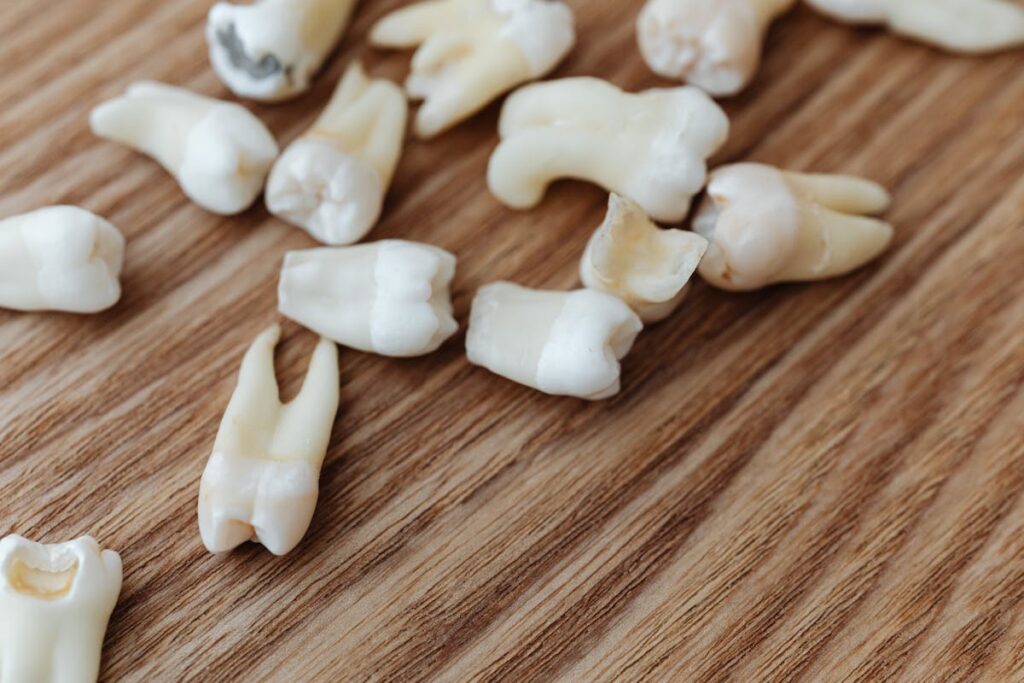The loss of a tooth can be an intimidating experience, often leading to significant changes in one’s oral health and overall quality of life. Dental implants have emerged as an effective solution, closely replicating the function and appearance of natural teeth. Yet, determining the right time to contemplate this treatment can be a complex process. This discussion aims to shed light on the various circumstances that might necessitate dental implants, providing a clearer understanding of their importance and thereby empowering individuals to make informed decisions about their dental health.
Understanding Dental Implants
Dental implants, a cornerstone of modern dentistry, offer a reliable solution to the age-old problem of tooth loss. They provide a strong and stable foundation for replacement teeth, mimicking the look, feel, and function of natural teeth. There are various implant types, specifically endosteal and subperiosteal. Endosteal implants, the most commonly used, are placed directly into the jawbone. Subperiosteal implants, on the other hand, sit on top of the jawbone but under the gum.
The recovery process after implant surgery is critical to its success. Post-procedure, patients may experience minor discomfort, swelling, and bruising, which can be managed with over-the-counter painkillers and ice packs. It’s essential to maintain good oral hygiene and avoid strenuous activities for a few days. The bone and implant then undergo a process called osseointegration, where the bone grows around the implant, anchoring it securely in place. This can take several weeks to months. Once healed, a custom-made crown is attached, restoring full functionality and aesthetics. To summarize, dental implants offer an effective and long-lasting solution to tooth loss when properly managed and cared for.
Consequences of Missing Teeth
The absence of teeth can precipitate significant health complications and impede daily routines. It is consequently essential to examine the health risks associated with tooth loss and the subsequent impact on an individual’s daily life. For those considering alternatives to dental implants, learning about dental bridges for restoring missing teeth can provide another viable option. The following discussion will address these concerns in detail and provide an understanding of why dental implants can be a valuable solution.
Health Risks Involved
Ignoring the consequences of missing teeth can lead to serious health risks. One of the most immediate risks is the increased potential for infection. When a tooth is lost, the exposed socket becomes a breeding ground for bacteria. Without proper infection prevention measures, this can lead to a painful and potentially dangerous oral infection.
A missing tooth also negatively affects bone health. When a tooth is in place, it stimulates the jawbone through activities like chewing, maintaining the bone’s strength and density. Without this stimulation, the bone begins to deteriorate. Over time, this bone loss can lead to a change in facial structure, giving the face a sunken appearance.
Dental implants play an essential role in mitigating these risks. They replace the tooth root, providing the necessary stimulation for the jawbone, thereby maintaining bone health. Additionally, they seal off the exposed socket, aiding in infection prevention. However, it’s important to consult a dental professional to understand the potential risks and benefits fully. Ignoring the problem is not an option, as the health risks involved with missing teeth can be far-reaching and severe.
Impact on Daily Life
A significant number of people underestimate the impact missing teeth can have on their daily lives. The absence of teeth impacts not just aesthetics, but also oral hygiene and overall health. While the initial concern might be about appearance, the subsequent issues are far more profound.
Missing teeth can lead to difficulty in chewing, which may result in dietary changes. This can be detrimental to one’s health over the long term. In addition, the lack of support from missing teeth can cause a shift in the remaining teeth, leading to misalignment and potential bite problems. This situation can further complicate oral hygiene, making it more challenging to keep the mouth clean and free from harmful bacteria.
The lifestyle changes associated with missing teeth can be significant. The discomfort and self-consciousness often experienced can lead to social withdrawal and a decrease in self-esteem. In fact, many people may change their lifestyle entirely to accommodate their new oral situation, including avoiding certain foods or social situations.
Dental Implants for Tooth Decay
Why might someone consider dental implants for tooth decay? The answer lies in both tooth decay prevention and cosmetic improvements.
Tooth decay, if left untreated, can lead to the loss of teeth. Dental implants provide a durable solution, acting as a replacement for the root of a missing tooth. They offer a stable foundation for permanent or removable replacement teeth, designed to match your natural teeth. This makes them an effective tool in tooth decay prevention as they help maintain the structure of the jawbone, reducing the risk of further tooth loss.
In terms of cosmetic improvements, dental implants can greatly enhance an individual’s smile and overall facial appearance. Unlike dentures, which can sometimes look unnatural, dental implants look and feel like your own teeth. They restore your mouth to its natural state, improving comfort, speech, and confidence.
Moreover, dental implants have a high success rate and provide long-lasting results. They are a worthwhile investment for those suffering from tooth decay, offering both functional and aesthetic benefits.

Injury-Induced Tooth Loss
While dental implants serve as a notable solution for tooth decay, they also play an essential role in addressing injury-induced tooth loss. Trauma to the mouth, often resulting from accidents, sports injuries or violence, can lead to the loss of one or more teeth, necessitating the use of dental implants as a restorative measure.
The process of trauma recovery can be long and arduous, with each step vital to returning the mouth to its pre-injury state. After the initial healing of soft and hard tissues, the dental implant procedure can be instituted. This involves the placement of titanium posts into the jawbone, serving as artificial tooth roots. Once healed, custom-made crowns are attached, replicating the appearance and function of natural teeth.
Beyond the physical restoration, the emotional impact of tooth loss should not be underestimated. Tooth loss can greatly impact a person’s self-esteem and affect their social interactions. Dental implants help restore confidence, allowing individuals to smile and speak without hesitation. Accordingly, they play a pivotal role not only in physical trauma recovery but also in psychological healing, making them an invaluable solution for injury-induced tooth loss.
Age-Related Tooth Loss
Time’s relentless march often brings with it the unwelcome guest of age-related tooth loss. This phenomenon, an unfortunate yet common aspect of geriatric oral health, is influenced by several age-related factors. Among these are a natural reduction in saliva production, leading to dry mouth, and the long-term effects of diseases such as diabetes and cardiovascular disease. Both conditions can accelerate oral health decline and tooth loss.
The aging process also sees a weakening of the immune system, making the mouth more susceptible to infections and diseases like periodontitis, a leading cause of tooth loss in older adults. In addition, the cumulative effects of a lifetime of dental wear and tear can result in the loss of teeth.
Age-related tooth loss can greatly impact an individual’s quality of life, affecting not only appearance but also the ability to eat and speak properly. Additionally, missing teeth can lead to bone loss in the jaw, further complicating oral health.
For these reasons, dental implants often become a necessary consideration for those experiencing age-related tooth loss. They provide a permanent, functional solution that can greatly improve oral health and overall well-being in one’s later years.
Dental Implants Vs Dentures
In the domain of tooth replacement options, dental implants and dentures stand out as the two primary choices. Both have their own unique benefits and drawbacks, and the choice between them often depends on factors such as the patient’s oral health, personal preferences, and budget.
- Cost Comparison: Dental implants typically have a higher upfront cost compared to dentures. However, they often prove to be a cost-effective solution in the long run due to their durability and low maintenance.
- Maintenance Requirements: Dentures require daily cleaning and need to be removed nightly, whereas dental implants function like natural teeth and can be cared for with regular brushing and flossing.
- Longevity and Comfort: Dental implants, being permanently affixed to the jawbone, offer a high level of comfort and stability. Dentures, though improved in design over the years, may still cause discomfort and require periodic adjustments.
In making a decision, one should consult with a dental professional who can provide personalized advice based on individual circumstances and needs. This consultation will allow you to make an informed choice between implants and dentures.
Assessing Your Candidacy for Implants
Having explored the comparison between dental implants and dentures, it becomes apparent that the suitability of dental implants depends on an individual’s specific circumstances. Evaluating your candidacy for implants involves several factors. The primary objective is to guarantee implant success, and this is often determined by the state of your oral health, jawbone density, and lifestyle habits.
Specific candidacy factors include sufficient jawbone to support the implant, healthy gums, and commitment to maintaining these structures. If the jawbone is lacking, options like bone grafting can be considered to make you a suitable candidate. Gum disease, if present, should be treated and controlled before implant surgery to prevent complications.
Further, patients’ lifestyle habits such as smoking can affect the implant’s healing process and long-term success. Chronic conditions like diabetes, if not well managed, can also hinder healing. Consequently, your commitment to quitting detrimental habits, maintaining good oral hygiene, and managing chronic conditions is essential.
Frequently Asked Questions
What Is the Lifespan of Dental Implants?
The lifespan of dental implants, or implant longevity, can vary. With proper care and maintenance, they can last for many years, even a lifetime. Regular dental check-ups and good oral hygiene are essential for their longevity.
How Does Smoking Affect Dental Implants?
Smoking negatively impacts dental implants as it impairs blood flow, hindering healing and potentially leading to implant failure. Consequently, for ideal implant success, cessation of smoking is highly recommended by dental professionals.
Are There Alternative Solutions to Dental Implants?
Yes, there are alternative solutions to dental implants. These include dental bridges, which replace missing teeth by anchoring to adjacent teeth, and partial dentures, removable prosthetics that replace one or more missing teeth.
Is the Dental Implant Procedure Painful?
The dental implant procedure may cause some discomfort, but it’s generally manageable. During implant recovery, pain management includes prescribed medications and good oral hygiene. Your dentist will provide detailed instructions to guarantee a comfortable, smooth healing process.
Are Dental Implants Safe for People With Chronic Diseases?
Dental implants are generally safe for individuals with chronic diseases. However, chronic disease considerations, such as uncontrolled diabetes, can affect dental implant eligibility due to potential complications with healing and infection. A thorough medical evaluation is necessary.
